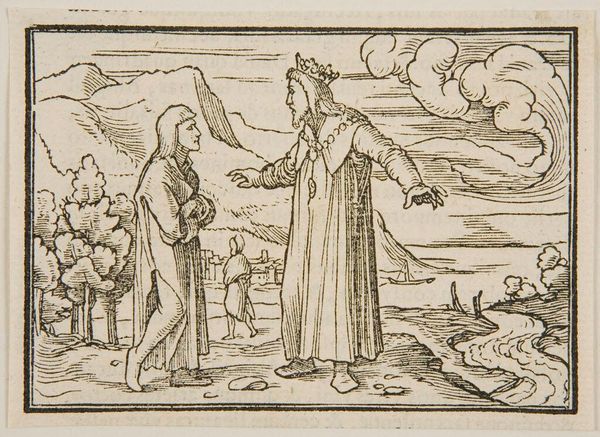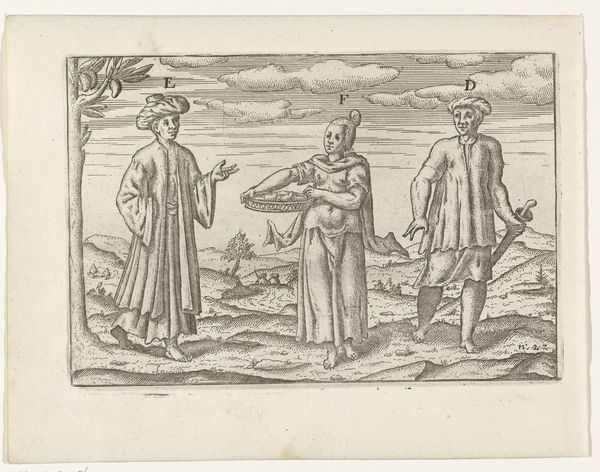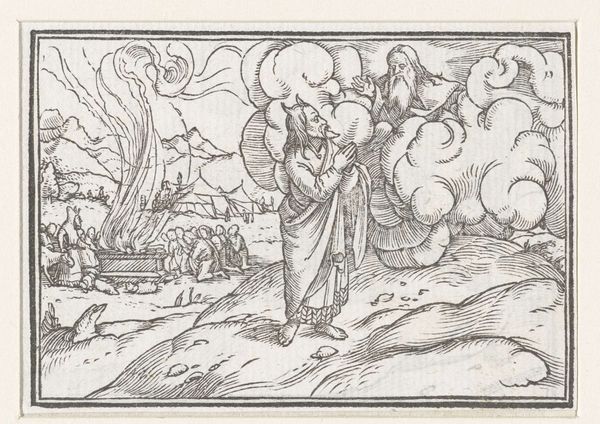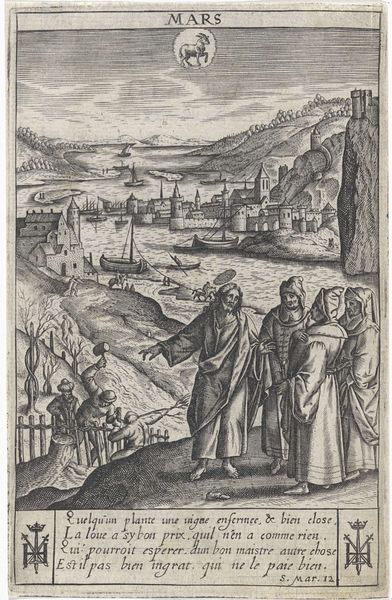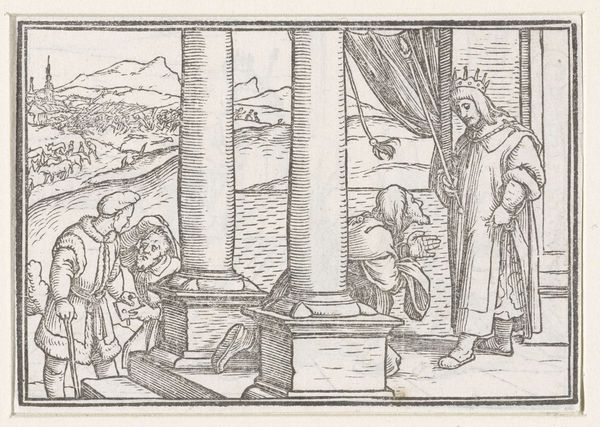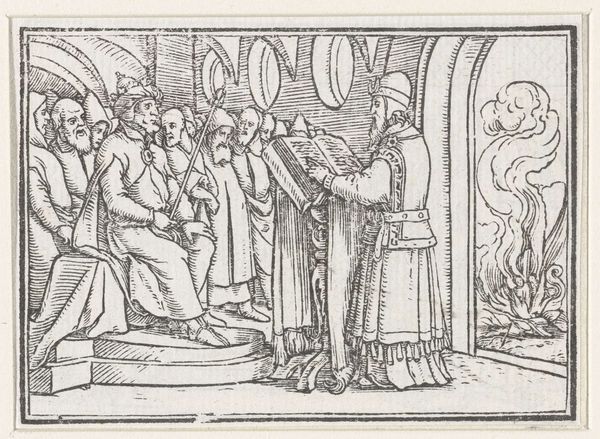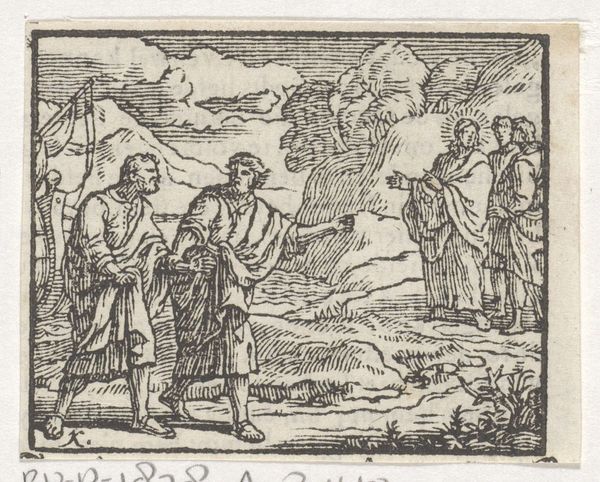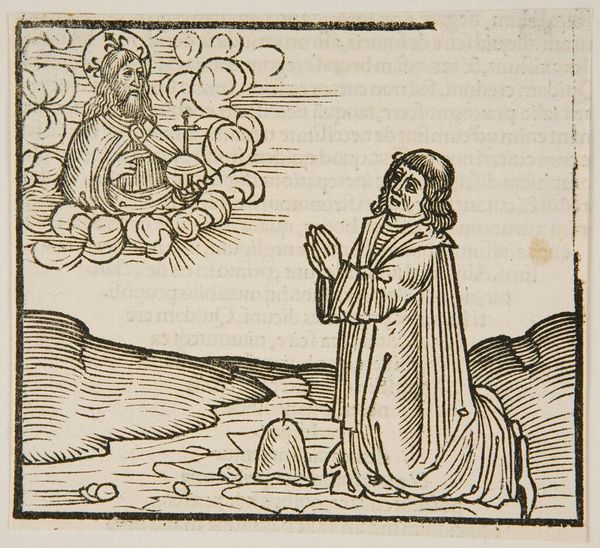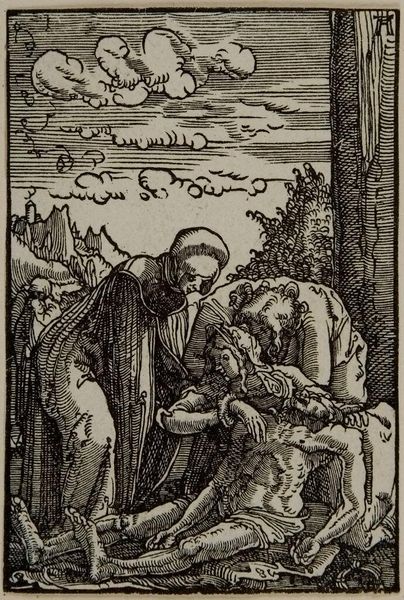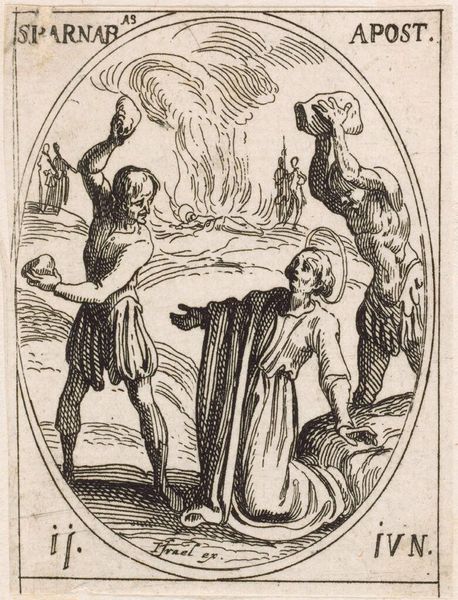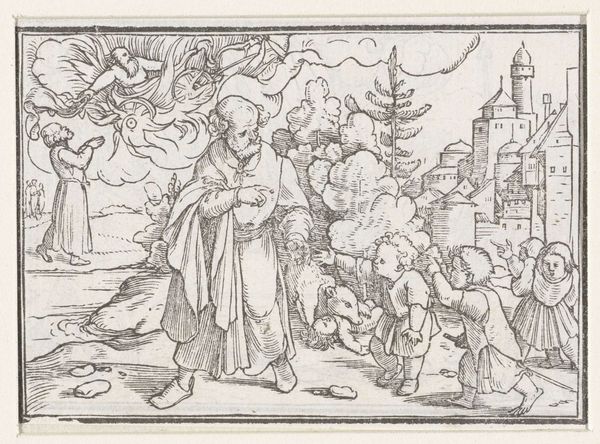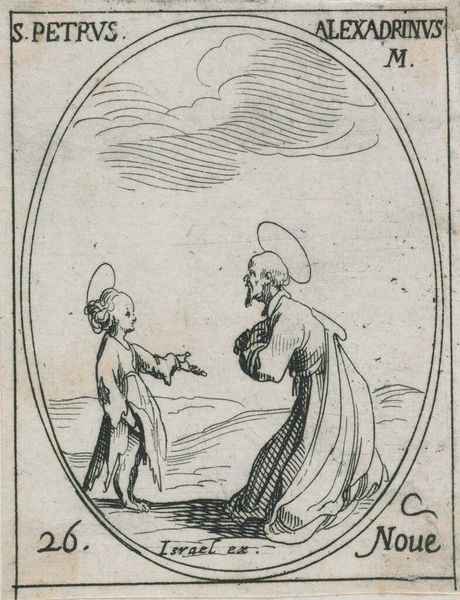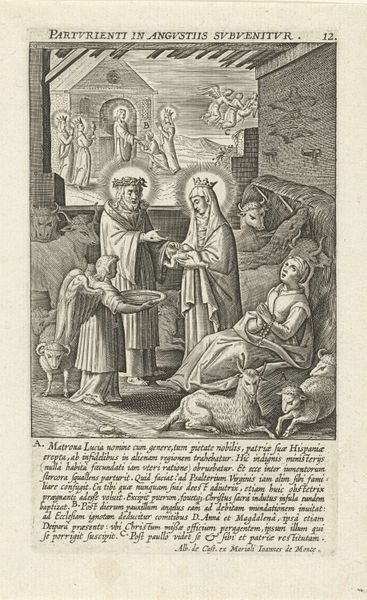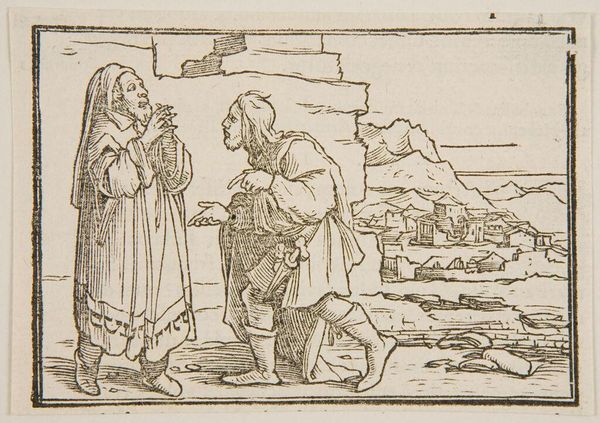
drawing, print, ink, engraving
#
drawing
# print
#
pen illustration
#
figuration
#
ink line art
#
11_renaissance
#
ink
#
pen-ink sketch
#
line
#
sketchbook drawing
#
history-painting
#
northern-renaissance
#
engraving
Dimensions: height 60 mm, width 85 mm, height 84 mm, width 98 mm
Copyright: Rijks Museum: Open Domain
This woodcut depicting Jonathan appealing to David comes from a series made by Hans Holbein the Younger in Switzerland, sometime in the 1520s. Holbein was working in a period of religious upheaval and the series reflects the key themes of the Reformation: moral behavior, faith, and the individual's relationship to God. Here Holbein uses the visual language of the Northern Renaissance, to emphasize the story's moral message. In a time of iconoclasm, Holbein's embrace of printmaking was a way of expanding his audience and using popular media to make powerful statements about social and religious issues. Holbein's images circulated widely in printed books and pamphlets, influencing public opinion and contributing to broader debates about religious reform. Studying Reformation-era pamphlets and woodcuts helps us understand the artist's engagement with the complex social, religious, and political landscape of his time. Approaching art from a historical perspective allows us to see how it both reflects and shapes the culture in which it's made.
Comments
No comments
Be the first to comment and join the conversation on the ultimate creative platform.
